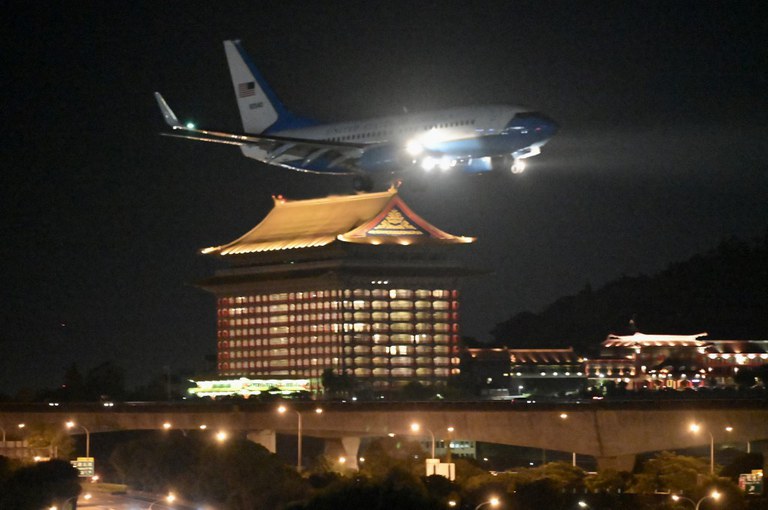Woman accused of defrauding thousands of people extradited to Laos
A Lao national who allegedly defrauded millions of dollars from thousands of people and traveled to neighboring Thailand with the money in late June faces prosecution back home after being extradited by Thai authorities on July 31, Lao police officials said. Phonethip Xaypanya, a 30-year-old woman who goes by the nickname Jay Thip, which in Lao means “elder sister Thip,” is accused of absconding with more than U.S. $16.4 million, including 20 billion Lao kip (U.S. $1.3 million), 400 million Thai baht (U.S. $11 million), and U.S. $4 million, according to the Lao Ministry of Public Security. She allegedly accumulated some of the money by promising her victims high rates of return on their cash deposits. Thai police said they arrested Jay Thip and her husband, Anousith Phoutthavong, 34, on July 29 at a hotel in Pathum Thany province, Thailand, for overstaying their visas. They were returned to Laos two days later. Immigration police records indicate that the couple left Laos by land on June 29 via the First Lao-Thai Friendship bridge. By the end of June, more than 5,000 people who said they were victims of her scheme filed complaints with Lao police. Officials say they expect many more defrauded citizens to come forward. Jay Thip denies that she defrauded people. “We, the Public Security Ministry, have received a lot of complaints from the public, [and] we’re going to forward this information to the investigation department,” a ministry official told RFA Monday. “She hasn’t been formally charged with any crime yet.” The official went on to say that the ministry could not disclose much information yet about the arrest. “The woman was just handed over to us yesterday, so we’re going to deal with her according to the law,” he said. A criminal lawyer said that if Jay Thip is found guilty, she would face at least 10 years in prison and be ordered to pay back the money. “First and foremost, the police will be investigating and interrogating her to find out how much money she stole when she defrauded people,” said the attorney, who declined to be named. “The police may have to sell all of her assets and property, like cars and homes to pay back her customers.” An official with the Lao Prosecutor’s Office agreed, but said that tracking down her wealth could prove difficult. “The question is, where is all the money?” he said. “It might be kept abroad, but how can we bring it back, or it may have been converted to gold and diamonds that are hidden somewhere else.” Jay Thip claims to have many businesses, including a shop that sells gold and diamond jewelry, and she posts photos of the expensive merchandise daily online. Her most lucrative business is an investment scheme that accepts cash deposits of at least 50 million kip ($3.27) from customers and promises a monthly interest rate of 30% in return. She also posts stories on her Facebook page saying that she often wins the lottery and has photos showing off her luxury goods in an effort to build trust with current and prospective investors. Jay Thip denied to Thai reporters that she was in possession of 400 million baht at the time of her arrest. “To electronically transfer that lump sum across the border, people have to have a lot of documents and proof,” she said. “Now, to answer the question of why I came to Thailand, my husband and I came here to deal with the problems that have occurred and why they’ve occurred. And another reason is that over there [in Laos], I fear for my safety.” Call for justice Meanwhile, Laotians who say they fell prey to Jay Thip’s scheme are clamoring for retribution. “I want my money back, but the problem is that in Laos legal procedures are not open to the public,” said a person who declined to be identified. “I just want her to be responsible for the debt. Is she going to pay back or not? I want to see the police enforcing the law to the fullest extent.” “The legal action against her should be transparent, not opaque, because this lady has a lot of powerful connections,” he said. “She can get away with it quickly and easily.” A businessman who invested 900 million kip (U.S. $65,400) said at first that Jay Thip paid him the interest regularly. “But later, I received nothing,” he told RFA. “I lost 900 million kip ($59,000). I’d never thought that Jay Thip would do this to us because she had been very open with us.” Another person who fell for the scheme doubted the victims would be paid back. “[S]cams like this have happened before,” the person said. “When your money is gone, it’s gone.” “Even her own friends who have known her since childhood were also cheated,” the businessman said. “I want my money back, and I want the police to do their job right.” Illegal investment schemes are nothing new in the largely impoverished country where corruption runs rampant and law enforcement can be lax. In 2017, for example, an agricultural company running a pyramid scheme in Laos defaulted on millions of U.S. dollars owed to its stakeholders, raising questions as to why the government failed to adequately regulate the market and inform investors about potential pitfalls. Translated by Max Avary for RFA Lao. Written in English by Roseanne Gerin.






